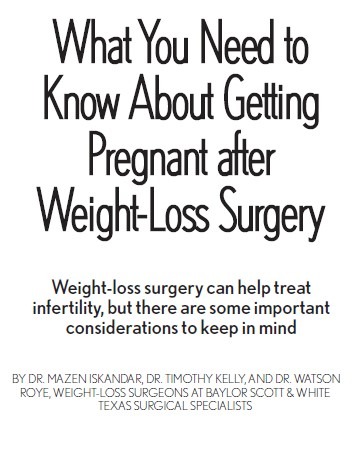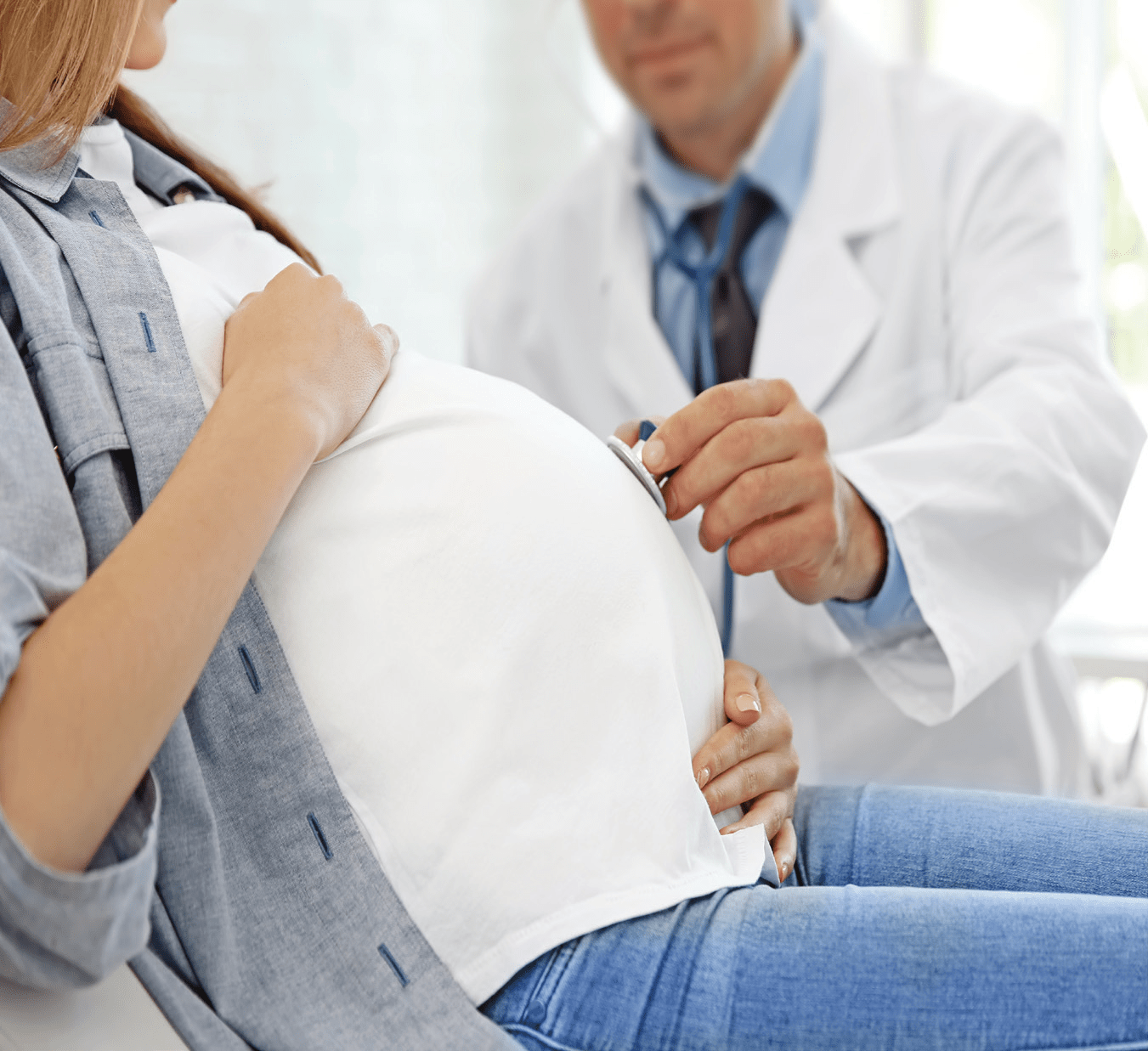

If you’re overweight or obese and battling infertility, weight-loss surgery could help you get pregnant and have a healthy pregnancy. There are a few different ways it benefits you and your baby. For one, if you’re obese, you may not ovulate regularly. The weight loss that follows surgery can help restart your ovulation.
Plus, many women who struggle to get pregnant have polycystic ovary syndrome (PCOS). PCOS and obesity are closely linked. Research published in the journal Clinical Endocrinology in 2021 found that 38% to 88% of women with PCOS are overweight or obese.
“If you have PCOS, you might not release eggs from your ovaries regularly,” said weight-loss surgeon Watson Roye, MD. You might not get your menstrual period very often, or you might have long menstrual periods. Weight-loss surgery can help women with PCOS reverse many of their symptoms and
improve their odds of becoming pregnant.
How weight-loss surgery can help you and your baby stay healthy
“Weight-loss surgery can reduce your risk of problems during pregnancy connected with obesity, such as gestational diabetes, high blood pressure, and excessive bleeding after delivery,” said weight-loss surgeon Mazen Iskandar, MD. It can make it less likely that your baby will need care in the neonatal intensive care unit (NICU).
When you should try to get pregnant after weight-loss surgery
After weight-loss surgery, it’s a good idea to wait until your weight stabilizes before you become pregnant. Generally, you’ll want to wait until 18 months after your surgery.
“Recovering from weight-loss surgery and making sure your nutrition is adequate can take time, and you want your body to be strong and healthy to support a growing baby,” said weight-loss surgeon Timothy Kelly, MD.
What to consider when choosing contraception after weight-loss surgery
Talk to your doctor about your contraceptive options after your surgery. You might not absorb oral contraceptives properly after weight-loss surgery. And hormonal contraceptives may increase your risk of developing deep vein thrombosis (DVT), a dangerous condition where a blood clot forms in a vein, usually in your leg. Research published in the journal Obesity Surgery reports that you’re at higher risk of DVT in the months after weight-loss surgery. So alternative methods such as an intrauterine device (IUD) or condoms might be better choices.
How to manage nutrition when you’re pregnant after weight-loss surgery
Because weight-loss surgery can affect how your body absorbs nutrients, you’ll want to talk to your doctor about any possible deficiencies before getting pregnant. Your doctor may recommend supplements and may want to monitor certain nutrient levels during your pregnancy. You’ll want to keep an eye on your protein, iron, folate, calcium, and vitamins B12 and D. You’ll also want to make sure you gain the right amount of weight when you’re pregnant, which can be a challenge for people who have struggled with their weight.
Physician is an employee of HealthTexas Provider Network, a member of Baylor Scott & White Health. ©2022 Baylor Scott & White Health






